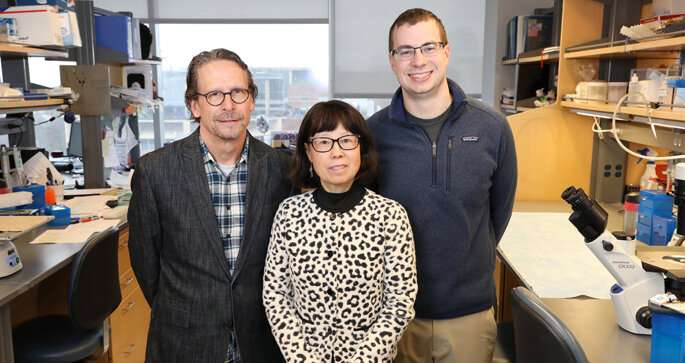Post-transplant diabetes may be reversible

Post-transplantation diabetes mellitus (PTDM), a common complication of immunosuppressive drugs that are given to prevent transplant rejection, may be reversible and at least partially preventable, researchers at Vanderbilt University Medical Center report.
"We hope these findings can be translated into clinical research as these results suggest ways that diabetes associated with immunosuppressive drugs can be prevented or treated more effectively," said Alvin Powers, MD, senior author of the paper published recently in JCI Insight.
Patients who receive stem cell transplants that differ genetically from their own tissues and subsequently develop PTDM have worse outcomes. Depending on the type of transplant and immunosuppressive drugs used, post-transplant diabetes may occur in as many as one-third of patients. Some will require insulin treatment.
"As a transplant physician, I like to fix problems, not cause a new one like PTDM," said Brian Engelhardt, MD, MSCI, associate professor of Medicine in the Division of Hematology and Oncology at Vanderbilt. "This exciting research points the way for future treatments to prevent or reverse this complication."
The cause of PTDM is unknown, but reduced insulin secretion is thought to be a major factor.
To determine how immunosuppression affects insulin secretion by beta cells in pancreatic islets, the researchers transplanted human islets into immunodeficient mice and treated the animals with two commonly used immunosuppressive drugs, tacrolimus (TAC) and sirolimus (SIR). Both drugs have been associated with PTDM.
The drugs had negative effects on human islet grafts that could contribute to development of diabetes. TAC and SIR led to impaired insulin processing and insulin secretion as well as reduced beta cell granules, increased macrophages and increased formation of amyloid deposits in the human islet grafts.
To determine if these effects were permanent, the researchers withdrew immunosuppressive treatment and found that beta cell function returned to normal.
When they co-administered Exendin-4, a glucagon-like peptide 1 receptor agonist used clinically in patients with Type 2 diabetes, they found it blocked TAC-induced beta cell dysfunction and partially ameliorated the effects of SIR. This indicated that the drugs' effects on beta cells can be prevented.
More information: Chunhua Dai et al. Tacrolimus- and sirolimus-induced human β cell dysfunction is reversible and preventable, JCI Insight (2020). DOI: 10.1172/jci.insight.130770



















